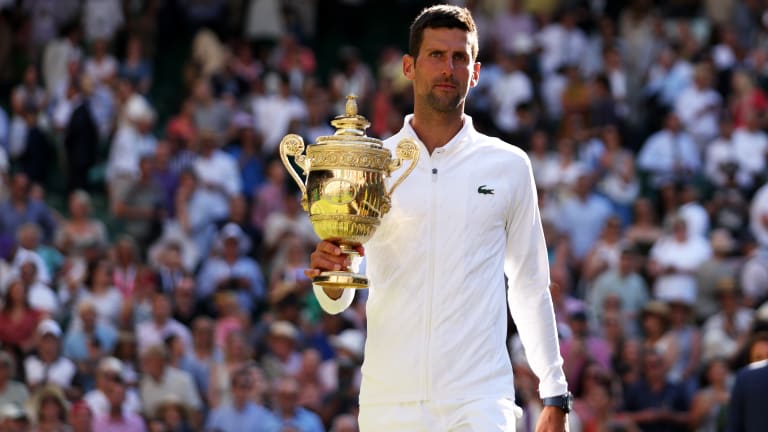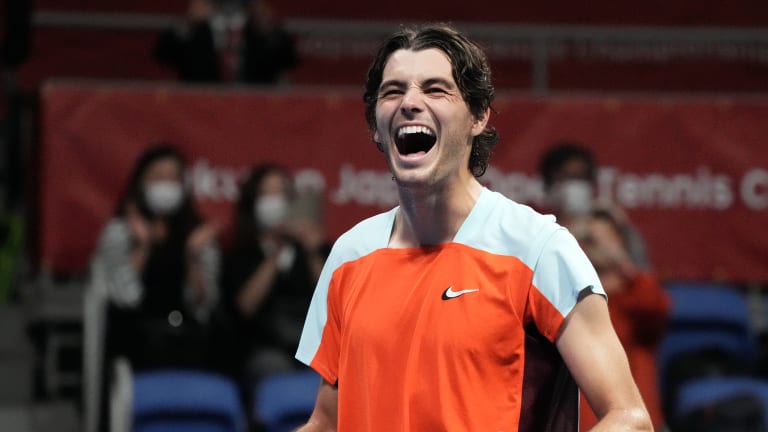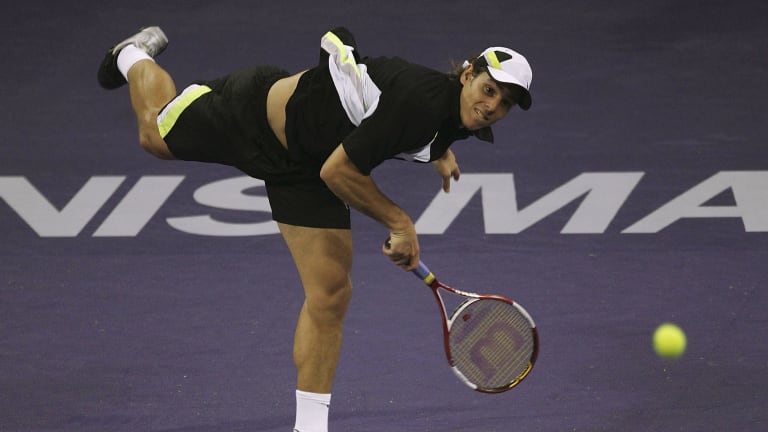ATP Finals
Can Novak Djokovic bail the ATP out of a jam?
By Oct 27, 2022ATP Finals
Inspired by Nadal, Cahill, respect abounds in Alcaraz-Sinner rivalry
By Nov 20, 2025ATP Finals
How the rivalry between Jannik Sinner and Carlos Alcaraz dominated tennis in 2025
By Nov 17, 2025ATP Finals
ATP Finals takeaway: Jannik Sinner walks the walk on making changes to Carlos Alcaraz matchup
By Nov 16, 2025ATP Finals
Jannik Sinner tops Carlos Alcaraz to retain ATP Finals title, ends 2025 on 15-match win streak
By Nov 16, 2025ATP Finals
Carlos Alcaraz meets Jannik Sinner for ATP Finals trophy | Preview, Pick, Where to Watch
By Nov 15, 2025ATP Finals
"Felt like I could do everything": Carlos Alcaraz books dream ATP Finals title tilt with Jannik Sinner
By Nov 15, 2025ATP Finals
ATP Finals: Carlos Alcaraz vs. Felix Auger-Aliassime | Preview, Pick, Where to Watch
By Nov 14, 2025ATP Finals
Felix Auger-Aliassime: "Beautiful night" in Turin came from riding wave of self-belief against Alexander Zverev
By Nov 14, 2025ATP Finals
ATP Finals: Alex de Minaur vs. Jannik Sinner | Preview, Pick, Where to Watch
By Nov 14, 2025Can Novak Djokovic bail the ATP out of a jam?
As Wimbledon champion, the Serbian gets a free pass into the ATP Finals. Normally, that wouldn't prevent a worthy player from qualifying, but not this season.
Published Oct 27, 2022
Advertising
Advertising

In perhaps having to award Wimbledon champion Novak Djokovic a spot the ATP Finals based on a Slam-winner exemption, the ATP is trying to eat its cake and have it, too.
© Getty Images
Advertising

A player like Taylor Fritz or Hubert Hurkacz, both currently on the Race to Turin bubble, could get squeezed out of the prestigious ATP Finals if Djokovic doesn't finish inside the Top 8.
© koji watanabe
Advertising

One-Slam wonder Gaston Gaudio was the last beneficiary of the ATP's season-ending championship exemption, nearly 20 years ago.
© 2005 China Photos